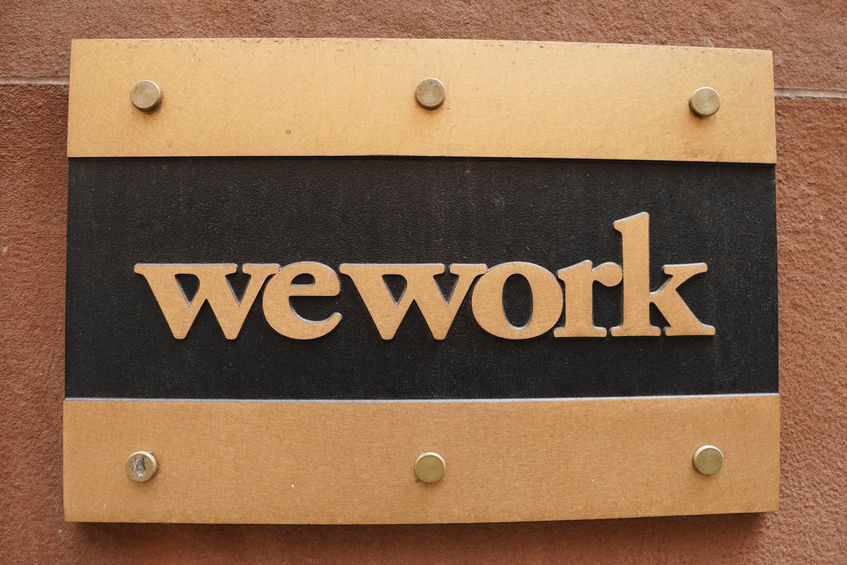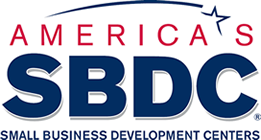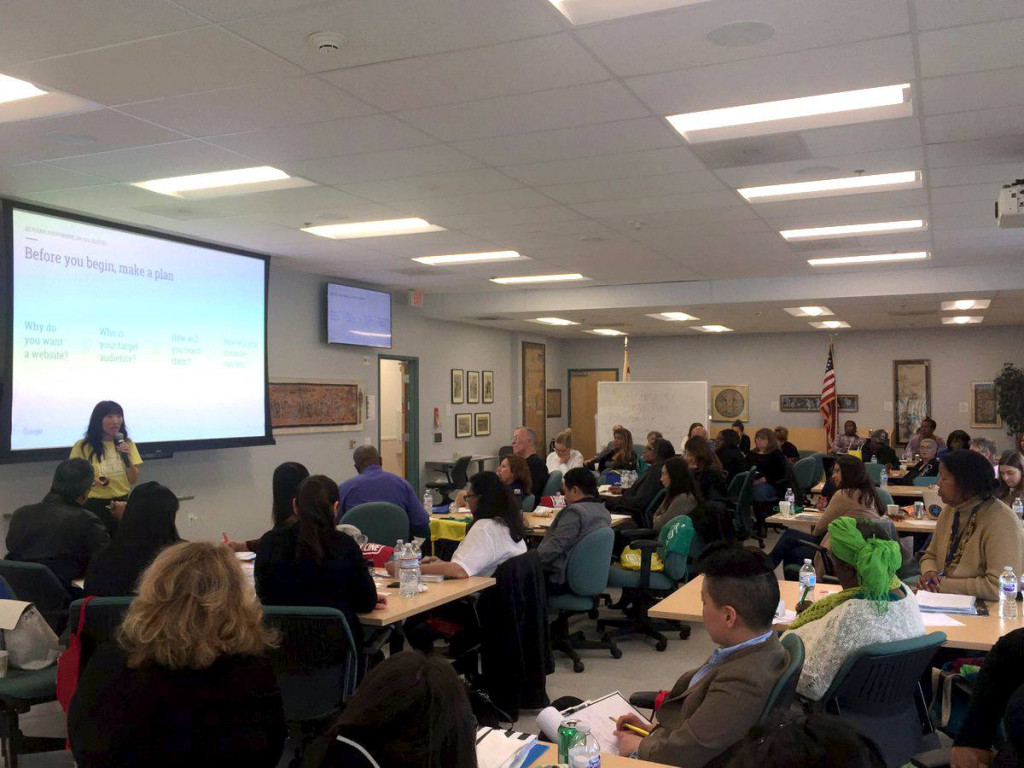Small Business
A Q&A With Viceland’s Host Of ‘Hustle’ John Henry
March 5, 2020 Entrepreneur and investor John Henry, who also hosted TV show ‘Hustle‘ on Viceland, recently spoke with deBanked Chief Editor Sean Murray about his experience as a young successful entrepreneur (Q&A is below). Henry will be a special guest speaker at Broker Fair 2020 on May 18th in New York City. YOU WON’T WANT TO MISS IT!!!
Entrepreneur and investor John Henry, who also hosted TV show ‘Hustle‘ on Viceland, recently spoke with deBanked Chief Editor Sean Murray about his experience as a young successful entrepreneur (Q&A is below). Henry will be a special guest speaker at Broker Fair 2020 on May 18th in New York City. YOU WON’T WANT TO MISS IT!!!
—–
About John Henry
Voted to Forbes’ 30 Under 30 and Ebony’s Power 100 lists – John Henry is a Dominican-American entrepreneur and investor. Henry started his first business at 18, an on-demand dry cleaning service for the Film and TV industry in New York City, with clients such as The Wolf of Wall Street, Boardwalk Empire, Power, and more. Henry led the company through its acquisition in 2014 — founding and selling his first business by the age of 21. On the heels of his first win, Henry launched Cofound Harlem — a non-profit incubator that aims to foster a robust tech ecosystem North of 96th street in New York City. Cofound Harlem has launched numerous high-growth companies in Harlem, gaining recognition from Fast Company, TechCrunch, Business Insider, and more. He is a former Partner at Harlem Capital, a diversity-focused early stage venture capital firm on a mission to change the face of entrepreneurship. Henry is also the host of VICELAND’s latest show, HUSTLE, which is Executive Produced by Alicia Keys and focused on helping scrappy entrepreneurs grow their business to the next level.
—–
Q (Sean Murray): You started your first business at 18 but what made you want to start one?
A (John Henry): It was driven by necessity more than a desire to be an entrepreneur, but I did exhibit some of the traits that pushed me towards that path. Entrepreneurs tend to have a history of non-conformity where there’s no pre-chartered path and in an environment that demands conformity, anyone that likes to express their own views comes up against a lot of friction. So, for me it was necessity but also part of my character to do things differently.
Q: What kind of lessons did you learn from running a business at such a young age?
A: It’s a serious game and it’s full of responsibility. I was telling myself at one point that I was just 18 and so the struggles I faced running a business could be overlooked because of my age, but the world doesn’t care how old you are. If you’re running a business, there’s no way around the responsibilities it demands.
The other thing is, when you come up against really tough situations, you need to be brave and have courage to go through those moments. I’m glad I had the courage in them. Once you take them head-on, you come out feeling better on the other side.
Q: As a former partner of a Venture Capital firm, what’s the #1 mistake you saw entrepreneurs and business owners make?
A: You’ve got to have macro understanding and micro-chops. Everything is connected, it’s not just knowing your business but knowing where you’re situated in the economic or market cycle and understanding what customer sentiment is. That’s what a lot of entrepreneurs miss. Like if your idea is to make a mobile app, that’s great, but how many apps are already out there? How long have apps been part of the market already? What’s going to make your app stand out from every other app? And this doesn’t apply just to startups, but also existing companies. Every 3 months, you should be asking yourself the business question and evolve if necessary. The hardest part though is when your gut is telling you you’re right but every other person out there is telling you you’re wrong. And that’s something you’ll really have to figure out.
Q: Why has helping minority entrepreneurs and businesses been so important to you?
A: I’m not usually asked why, but I was seeing less and less minority representation among entrepreneurs that were receiving capital. There are some systemic factors that make it harder to get ahead but at the same time people can become inclusive to the point where they’re becoming exclusive. So, I think it’s about helping those that are on their way to overcoming tremendous odds to get far.
Q: Real estate, what can you tell me about your foray into that market?
A: I can say it’s the best business that I have been in so far. Real estate is the #1 fundamental building block of wealth. When I first got into it, I was shocked that you could put down 20% and the bank would put in the other 80%. This is a game of physical assets and I’m glad I came across it when I did. I’m currently building a bedrock of business around real estate, my preference being residential multi-family apartments.
Key Takeaways from the Q2 2019 Private Capital Access Index
July 17, 2019The latest Private Capital Access Index, published quarterly by Pepperdine Graziado Business School, was released recently, and with it came fresh insights into the minds of business owners. Covering companies that earn under $5 million in revenue annually, as well as those that raise between $5-100 million, the Index provides information on a wide range of business. Below are snapshots of some of the main points found within the report:
More Large Businesses Appear to be Looking for More Money
Businesses that earn between $5-100 million a year are seeking to raise more financing in 2019. Compared to 2018, many loan ranges have seen jumps: the amount of larger businesses seeking between $500,000-999,999 has over doubled in size to 39% and $1-1.999 million has more than tripled to 28%. However, outside of this range, desire has fallen for financing among larger firms.
Slight Fluctuations in How Quickly Customers Are Paying
The past year has witnessed some small changes in the speed at which businesses receive payments from their customers. With 15% of smaller businesses reporting accelerated reception of payments in the previous three months, an increase from the 11% that was stated this time last year, and an increase of 1% of larger businesses claiming a speed up, it seems at least that a small sector of fortunate vendors are benefitting from increasingly prompt customers.
Accompanying these figures are the reports of payments slowing down, that show a 2% increase amongst smaller companies and a drop to 10% from 23% for their larger counterparts. This jump is accounted for by the 81% of larger businesses which reported that the speed of payments remained the same, which is up from 70%; while the smaller firms reported 63%, down from 68% in 2018.
More Businesses Are Planning to Raise Finance
More businesses of all sizes are looking to raise capital in the coming six months compared to 2018, with 35% of small businesses and 28% of larger businesses claiming that they will be seeking financing, an increase of 5% for both. This news, coupled with the knowledge that the total number of businesses which said they will not be seeking finance dropped, may come as a gift to lenders and brokers, but it should be taken with a pinch of salt, as those who said they were unsure also rose by 4% to 35%.
Purposes for Raising Finance Remain Mostly Unchanged
Growth and expansion continue to be the primary reason for seeking finance, with an increase on last year from 58% for both the smaller and larger companies to 62% and 77%, respectively. As well as this, working capital fluctuations and refinancing existing loans/equity remain as the second and third highest reasons to raise funds, with the total of the former dropping 3% to 17% and the latter falling to 7% from 10%. Besides these motives, capital required to replace equipment or facilities unrelated to expansion saw a dip of 4% in larger businesses.
Businesses Are Optimistic
Despite over 50% of businesses saying that it is difficult to acquire both equity and debt finance, as well as 49% claiming that the current business financing environment restricts growth opportunities, businesses appear to be confident about the future, with 68% of them expecting increases in revenue over the next year. Also, respondents appear to be unconcerned by external forces, as 57% of businesses don’t believe the federal tax hike will impact them and 74% don’t expect to be hampered by severe weather from climate change. These may or may not prove to be naïve as time goes on, especially the latter, as 56% of the respondents do not have emergency funds in place should severe weather disrupt their business, but for now companies seem to be looking forward to the coming year.
The full report is available here.
WeWork, The Home Office of Small Business Finance Startups
March 20, 2019 Kunal Bhasin, owner of brokerage 1 West Finance, funded three A paper deals for companies that all happened to work out of the same Manhattan office building on the corner of 42nd Street and Third Avenue. It’s actually not as big a coincidence as it sounds because it’s the same building where 1 West Finance operated out of, along with likely hundreds of others at a midtown WeWork, the giant co-working company that has 59 offices in New York City alone.
Kunal Bhasin, owner of brokerage 1 West Finance, funded three A paper deals for companies that all happened to work out of the same Manhattan office building on the corner of 42nd Street and Third Avenue. It’s actually not as big a coincidence as it sounds because it’s the same building where 1 West Finance operated out of, along with likely hundreds of others at a midtown WeWork, the giant co-working company that has 59 offices in New York City alone.
What is remarkable is that the co-working concept (where companies work alongside each other for the benefit of all) actually works. At least it did for Bhasin. Because Bhasin’s company was expanding and needed to find space very quickly, he was unable to find a larger office at that same WeWork office. And because location was critical, he relocated to a Regus right nearby. Regus, which preceded WeWork, also rents space to companies, but focuses less on encouraging resident companies to get to know each other.
“I already miss it a lot,” Bhasin said of his old office at WeWork.
Bhasin said he met his former WeWork colleagues, who became clients, at the communal coffee stations and lunch events organized by WeWork.

Peter Graves, founder of Two Trees Funding, a one-man ISO shop, runs his business out of the WeWork office at 110 Wall Street. He said that he has gotten referrals from colleagues at other companies in his WeWork office. And he really appreciates the ability to to expand without having to change your lease.
The office culture is one of the main reasons why another company in the small business finance space loves WeWork. “Here, we engage with other people [and] we get a fresh perspective from other people, whether it’s a graphic designer or someone who works in cryptocurrencies,” a representative who asked to remain anonymous said. They also appreciate the flexibility, acknowledging that when they started with only four people, they rented month to month. Now, they have 12 people and a lease agreement for two years.
“We could have gotten a commercial space for 5 years,” they said. “But maybe we’d need a bigger space. This allows for flexibility.”
How to Turn Your Client List Into a Business Referral Network
March 19, 2019
Excel Capital CEO Chad Otar was so impressed by a marketing company he helped obtain funding for that he turned around and emailed his other clients about the potential benefits of their service. As a result Otar said that about five of his clients actually started working with the marketing company, including Lori Miller, the owner of LGC Interior Design in Melville, Long Island. Excel Capital, in effect, started creating its own business referral network.
“[The marketing company] helped me fix my website and get me out there,” Miller told deBanked. “It helped me significantly.”
For a year, Miller worked with the company, which helped to expand her company’s social media presence, get her work into a showhouse, and get one of her rooms published in Architectural Digest. And this was all thanks to a referral from Otar.
Kunal Bhasin, owner of 1 West Finance, said that he will sometimes introduce his clients to one another. These are usually clients he has funded, but they could include a prospective client, he said.
Jonathan Casillas, founder of Casillas Capital Partners, an ISO in North Carolina, said he will refer clients to specialists that can help them. “Our direct job is to get them money…but if I see a problem, I try to fix it,” Casillas said. “And if I can’t, I point them in the right direction. I’m here to help the entire business, not just get them money.” Casillas said that startups, in particular, need a lot more than money. They often need help with structural parts of their business and Casillas said he will refer them to a lawyer or an accountant, or whoever they need to get where they want to go.
Can a Merchant’s FICO Score Increase By the End of the Day?
March 16, 2019 Earlier this week, Alan Hayon had a challenge – to get a merchant above a 500 FICO score in order to make them eligible for small business funding. Within 30 minutes, Hayon increased the merchant’s personal FICO score by 59 points, getting them above 500. And the deal funded the following day. Hayon is the founder and CEO of The Credit Desk, a credit repair company in Long Island, and he used Experian Boost to get the merchant’s score up. It’s a brand new product from Experian that allows you to add and get credit for bills you have been paying on time, like gas, electricity, water, TV, internet and phone.
Earlier this week, Alan Hayon had a challenge – to get a merchant above a 500 FICO score in order to make them eligible for small business funding. Within 30 minutes, Hayon increased the merchant’s personal FICO score by 59 points, getting them above 500. And the deal funded the following day. Hayon is the founder and CEO of The Credit Desk, a credit repair company in Long Island, and he used Experian Boost to get the merchant’s score up. It’s a brand new product from Experian that allows you to add and get credit for bills you have been paying on time, like gas, electricity, water, TV, internet and phone.
What used to take two to three weeks is now instantaneous with Experian Boost, according to Hayon. And the potential ramifications for small business funding are quite astounding. John Celifarco of Horizon Financial Group, a brokerage in New York, said that he had never heard of credit repair happening so quickly and that if it actually works, it could revolutionize the industry.
“Every deal could move up a grade,” Celifarco said. “This could have huge effects not just on the low end. You could jump someone from mid to high credit.”
Hayon conceded that it’s much harder to get a credit score up to, say 650, very quickly. That is harder and takes a little more time. Still, the new Experian Boost product means the ability to cross a FICO score minimum threshold and move a merchant from unfundable to fundable, almost immediately.
“It’s a positive domino effect,” Hayon said of Experian Boost, and what follows. “Then they can pay their credit card bills, get caught up with vendors and improve their credit further.”
This practice, often called “rapid rescoring,” has been used in the mortgage industry for years, according to Daniel Dias, owner of Small Business Lending Source, a brokerage in San Diego. Dias said that the rapid rescoring of a FICO score for someone applying for a mortgage can take as little as a day. Pretty fast. But for his clients, which are small businesses, he always tells them to wait at least 30 days to see an increase – from 20 to 60 points – in their score. By complete chance, when asked who he directs his clients to for credit repair, he said it was Hayon. Merchants pay Hayon directly, not via the broker.
In Celifarco’s experience, credit repair generally takes three to six months, which is usually too long for the merchant to wait to improve their FICO score. So he approaches credit repair a little differently. He advises his merchants to seek credit repair services after their first funding. This way, they can improve their credit and get a better rate the second time they go for funding.
Cory Petitte, who has worked both as a broker and a funder in South Florida, cautioned against inflating FICO scores in a way that misrepresents the merchant.
“I want to make sure the merchant can handle the payment,” he said.
He thinks that rapid rescoring is not a good practice and drew parallels to the 2008 mortgage crisis.
“You had mortgages that really weren’t A paper. [Instead,] they were B, C and D paper that were being represented as A paper.”
Furthermore, he said that he has spoken to underwriter who have told him they can sometimes tell when a FICO has been rapidly rescored.
Common Mistakes Commercial Tenants Make
March 8, 2019 deBanked recently heard a live presentation given by Dale Willerton, “The Lease Coach.” Willerton is an expert in helping commercial retail tenants to find and negationate spaces. But much of his advice applies to commercial office tenants as well. Below are some common mistakes he urges tenants to avoid:
deBanked recently heard a live presentation given by Dale Willerton, “The Lease Coach.” Willerton is an expert in helping commercial retail tenants to find and negationate spaces. But much of his advice applies to commercial office tenants as well. Below are some common mistakes he urges tenants to avoid:
Not Looking at Multiple Spaces Simultaneously
You want the landlords pursuing you, not the other way around. Therefore, Willerton said that you want to see multiple spaces at once so that you have options and bargaining power. Particularly if you don’t have much time, you don’t want to be at the mercy of one landlord.
Making the First Offer
Let the landlord make the first offer, Willerton says. If you like a space, tell the broker or the landlord, “Why don’t you send me a proposal.” Otherwise, if you make the first offer, you could end up offering more than what the landlord was willing to accept.
Overpaying for Space
Commercial rent is often based on square footage. So if the space you’re looking at has an unusual configuration, or even if it doesn’t, measure it independently to make sure that you’re paying the correct amount. Even if you are already in the space, if you measure the space and see that you actually have less space than what you’re paying for, you can ask for money back from the landlord. Or at least a rent reduction moving forward.
Telegraphing Your Feelings/Intentions
Don’t let a landlord know that you really like their space or that you really want to renew a lease. It gives them leverage. They now know that you really want what they have and that gives them more negotiating power.
Not Walking Away from a Bad Deal
Like deals that include certain personal guarantees. Some tenants require a personal guarantee and others only ask for it. Find out which and avoid personal guarantees when possible.
Looking Too Successful
If the landlord sees that you’re now driving a Porsche to work, or that your 17-year-old daughter has her own Mercedes, he or she may assume that your business is doing very well and may increase your rent when it comes time for a lease renewal. You may, in fact, be doing well. Or you may just appear to be doing well and then get hurt by a rent increase. This doesn’t mean you shouldn’t drive a Porsche if you can afford it – just to fool your landlord. It’s just something to be aware of.
Not Doing Your Homework
Just as you would do your research on a merchant before funding them, research the building and the landlord. Try to find out how long previous tenants have stayed in the building. Why did the previous tenant leave? Are they expanding, or did they have a bad experience with the building or the landlord? Is the building up for sale? If a building changes ownership, that can impact tenants down the road.
Also, Be Mindful of Commercial Agents’ Motives
Willerton said he doesn’t believe that commercial agents are bad or are working against the tenant at all. But he said that if the agent is getting paid on commission by the landlord, it’s important to be mindful that their ultimate “boss” is the landlord and not you.
How to Respond to Negative Press
January 3, 2019 Wondering what to do about negative press? deBanked spoke to some Public Relations professionals about helpful techniques to manage the situation.
Wondering what to do about negative press? deBanked spoke to some Public Relations professionals about helpful techniques to manage the situation.
“When it comes to a negative story, we advise our clients to bridge back to something they are comfortable talking about,” said Bill McCue, Executive Consultant at Indicate Media.
 Bill McCue, Indicate media
Bill McCue, Indicate mediaMcCue said this is known as “bridging.”
“If you’re asked a question about something you don’t want to talk about for whatever reason, you can use transitional phrases like ‘You know that’s an interesting point, but what the real story here is…’ or ‘What we believe is truly the most important thing to talk about is…’ And just keep bridging from a topic you’re not comfortable addressing to a topic you are comfortable addressing.”
McCue noted that politicians and professional athletes are excellent at this. His favorite example is hockey players, who never talk about themselves. When they get a question about their own performance, they always “bridge” to something like the strength of another player or the coach or the entire team.
McCue also advises all clients, whether they’re overcoming negative press or not, to speak in simple terms, and avoid jargon or acronyms.
“Never assume that the reporter is an expert on your industry,” McCue said. “He or she might be writing about [multiple] topics throughout a given business day. Or they may have been writing about real estate last week and now they’re writing about small business lending…So never assume a certain level of expertise.”
 Jason Geller, JMediaHouse
Jason Geller, JMediaHouseIf your industry has gotten negative press, but your company in particular has not been targeted, Jason Geller, Founder of New York-based public relations firm JMediaHouse, said that no response is often the best response.
“Unless you have established clear goals and a message you must put out, or if the allegation is serious, the best response in most cases is nothing. Ignore it,” Geller said. “Don’t give the story life. By opting out you’ve robbed it of the oxygen it needs to continue on.”
Geller also said that if the reporting contained inaccurate information, then the company must first provide the correct information to the reporter or blogger. This, he said, “opens up a great opportunity to leverage the situation and strengthen your relationship with the journalist, and to allow him or her to get to know your company and clients better.”
If a given negative story is so bad that it truly warrants a response, Geller said that it’s critical first to research the writer or blogger before responding.
“What have they written about in the past? Do they have a history of putting out negative commentary? Have they had a bad experience with your product or brand? Once you have the answers to these questions, you’ll be able put together a much more concise and educated response,” Geller said.
THE ABCs OF SBDCs
December 16, 2018 An often-overlooked national network of nearly a thousand Small Business Development Centers has the potential to help alternative funders cement relationships with existing clients and locate new ones. The centers, known as SBDCs, offer free or low-cost training and consultation to established and aspiring merchants and manufacturers.
An often-overlooked national network of nearly a thousand Small Business Development Centers has the potential to help alternative funders cement relationships with existing clients and locate new ones. The centers, known as SBDCs, offer free or low-cost training and consultation to established and aspiring merchants and manufacturers.
The earliest SBDCs have been around for four decades. The centers operate in conjunction with the Small Business Administration as public-private partnerships and serve about 1.5 million clients annually.
Centers help small-business owners evaluate ideas, organize companies, find legal assistance and obtain operating capital.
But not everyone knows all that. “The network is underutilized,” says Donna Ettenson, vice president of operations for Washington-based America’s SBDCs, which functions much like a trade association for the centers scattered across the nation. “We’re one of the best-kept secrets in the United States federal government.”
That means alternative funders can assist customers by simply informing them that the centers exist and can offer potentially beneficial services. Providing basic information on the SBDCs could become part of a consultative approach to selling that brings repeat business, especially with merchants who lack business skills or experience, observers suggest.
What’s more, alt funders who want to increase their chances of benefitting from SBDCs can go beyond merely providing clients with a rundown on the centers. The funders can become actively involved with the work of carried out at the centers.
One way of taking part is to contact nearby centers and offer to make presentations at seminars or workshops, Ettenson says. Funders could provide information to fledgling business owners on the instruments available through the alternative-funding industry, such as cash advances, loans and factoring, she suggests.
 To get started, alternative funders can visit the America’s SBDC website, where they’ll find a search tool that provides contact information for their nearest centers, Ettenson says. From there, they could discuss possible connections with officials at the local centers, she advises.
To get started, alternative funders can visit the America’s SBDC website, where they’ll find a search tool that provides contact information for their nearest centers, Ettenson says. From there, they could discuss possible connections with officials at the local centers, she advises.
That involvement would not only provide exposure to merchants in need of capital but also to center officials who point merchants toward capital sources. If enough members of the alt funding industry took part, their work could eventually give rise to something akin to the lists of attorneys that some centers maintain, Ettenson says.
Centers often tap attorneys—perhaps quarterly—to lecture on a rotating basis on what type of business to form. That could mean organizing as a corporation, limited-liability partnership or some other form. In much the same way, funders could share their knowledge of instruments for obtaining capital.
Funders could emulate the lawyers who use the centers as a forum for soft marketing, Ettenson says. The speaker becomes a familiar face and can leave business cards that students could use to contact them as questions arise. However, speakers must provide general information and are prohibited from using speaking opportunities as blatantly self-promotional unpaid advertisements, she cautions.
What’s more, the centers have to exercise caution to avoid recommending specific attorneys, accountants or sources of capital because they could incur liability if events go sour and a service provider absconds to Bogata, Columbia, Ettenson points out. That keeps the centers “ecumenical,” in that they provide a list of professionals for clients to interview and rather than pointing to a single source.
Alternative funders can explore other ways to become involved with SBDCs, too. The national organization presents an annual trade show and professional development conference for service-center directors and service-center staff members who teach or consult with clients. Alternative funders who have taken booth space on the exhibition floor or made presentations in the accompanying conference include RapidAdvance, Breakout Capital, Kabbage and Newtek Business Services.
When America’s SBDCs issues a call for presentations at the annual conference, it receives approximately 300 applications for about 140 speaking slots. Some of the speakers come from the rosters of presenters at past shows, while companies newer to the trade show can purchase an entry-level sponsorship that includes booth space and the right to conduct a workshop.
The attendees at those annual conferences can tell their clients about the funders they encounter there. Attendees can also find out more about the alternative- funding industry and then pass that information along to merchants.
Some regional centers in states with large populations—such as California—can also hold conventions for their officials, says Patrick Nye, executive director for small business and entrepreneurship at the Los Angeles Regional SBDC Network, which is based at Long Beach City College. His state was planning its second statewide gathering this year and intends to do it again every other year. Alternative funders could participate, he says.
With so much going on at the centers, someone has to front the cash to keep the lights on. Local organizations are funded partly through federal appropriations administered by the SBA. “In order for the federal money to be pulled down, a matching non-federal dollar must be provided as well,” Ettenson says. The federal funds are apportioned based on the amount of matching funds the centers provide.
The matching funds usually flow from colleges, universities and state legislatures. “It’s a mix,” Ettenson says of the sources. Institutions of higher learning often meet part of their matching-fund goals by providing “in kind” resources—such as classrooms, services and instructors—instead of cash.
In the six states that administer the centers through their economic development departments, the state legislatures generally appropriate matching funds. In Texas, the representatives of the state’s four regional programs combine forces to lobby the legislature for matching funds, and that teamwork reduces the cost of their efforts in Austin.
The federal funds and matching funds support local and regional centers that belong to a network based on 62 host institutions. Of the 62, six operate through the economic development departments of state governments. They’re in Indiana, Illinois, Ohio, West Virginia, Minnesota and Colorado. The rest of the host institutions are mostly universities or community colleges. Some are based in economic development agencies.

One can think of the regional centers as something akin to corporate headquarters and the local centers as retailers, says Nye, who administers the Southern California regional center. The local centers under his regional’s jurisdiction are located in only three counties but pull in the sixth-largest share of funding because of Southern California’s huge population, he notes.
The local service centers provide training and consulting for entrepreneurs starting or expanding their enterprises. About 60 percent of the clients are already in business. Of the 40 percent who don’t own a business, about half launch one after receiving assistance from an SBDC, Ettenson says.
The centers don’t charge for consulting services, and the fees for training are just large enough to cover expenses. The training fees usually remain in the centers that provide the instruction where they’re used to cover expenses like buying computers.
In Southern California centers, the business advisors are usually under contract and have knowledge to share from their experience in business, marketing, banking, social media, consulting or other realms, says Nye. Not many college instructors work in the centers, he notes, adding that the centers are monitored to avoid conflicts of interest among advisors.
To track how well advisors are performing, the national organization produces economic impact statements by interviewing thousands of clients. Interviews generally take place two years after consulting sessions. That should provide enough time to get results, Ettenson says
Thus, America’s SBDCs this year surveyed clients who received services in 2016. Those long-term clients received $4.6 billion in financing, while last year the clients surveyed who got underway in 2015 had received $5.6 billion in financing. She could not break down that financing by categories like banks and non-banks.
Discussing those surveys, Ettenson offers some details. “If you talk to us for two minutes, we don’t consider you a client,” she emphasizes. The SBDC definition of what constitutes a client calls for at least one hour of one-to-one consulting or at least one two- hour training session, she says. The organization defines “touches” as people with less exposure, such as those who call on the phone with a question.
When an SBDC client needs funding, officials at the centers have no qualms about including alternative funders in their recommendations to clients who are seeking funds, says Ettenson. “We don’t exclude anybody in any way, shape or form unless there’s some reason to think they’re fraudulent,” she notes.
But malfeasance isn’t the worry it once was, Ettenson asserts, noting that alternative funders have gained credibility in the last five or so years as they began policing their own industry. “They’ve learned to keep track of who’s in their space and how they’re operating,” she says.
Alternative financing has established a niche that benefits small-business people who know how to use it, Ettenson maintains. “They understand that they’re borrowing money for a short period of time and it’s going to cost you a fair amount,” she says. “It’s a short-term bridge to get to whatever your goal is.” Merchants seeking funders should learn the differences among alternative funders—whom she says all operate a little differently from each other—to choose their best option.
And opportunity for alternative funders may abound at the centers in the near future. Nye cites the two biggest goals for his centers as new business starts and capital infusion. Center advisors help develop business plans that aid clients in obtaining financing, he says. Last year, his region received a little over $4 million from the SBA and used it to help start 365 new businesses and raise $148 million in capital infusions. Those efforts created 1,700 jobs, he says.





























